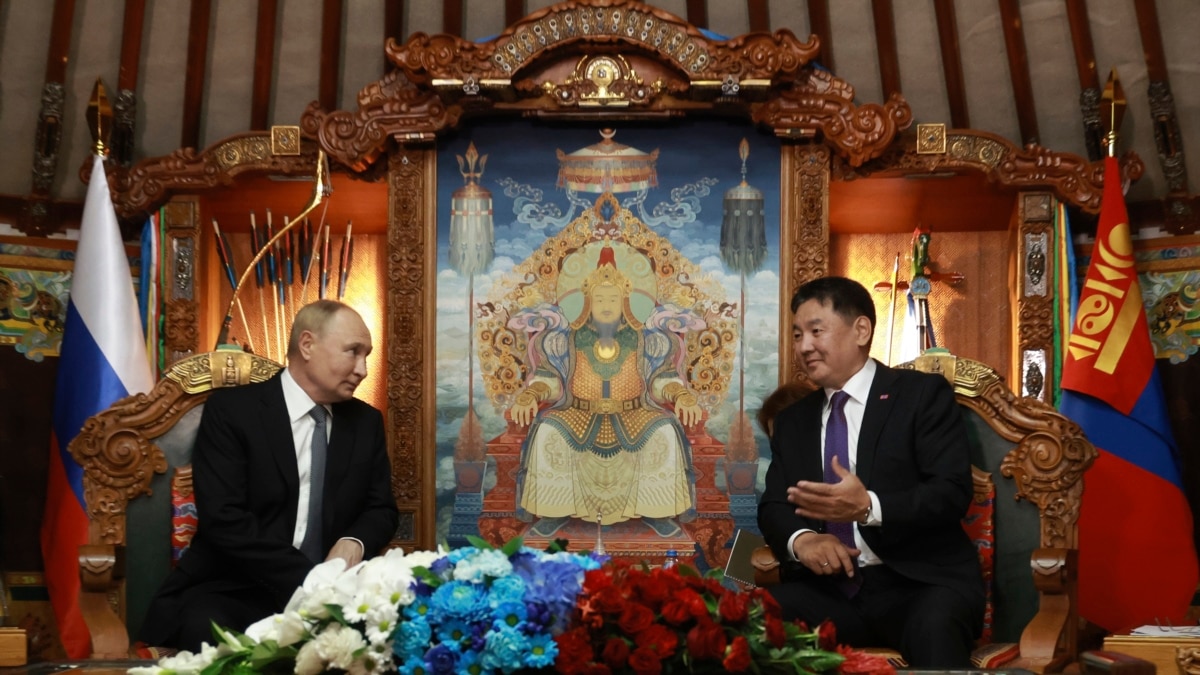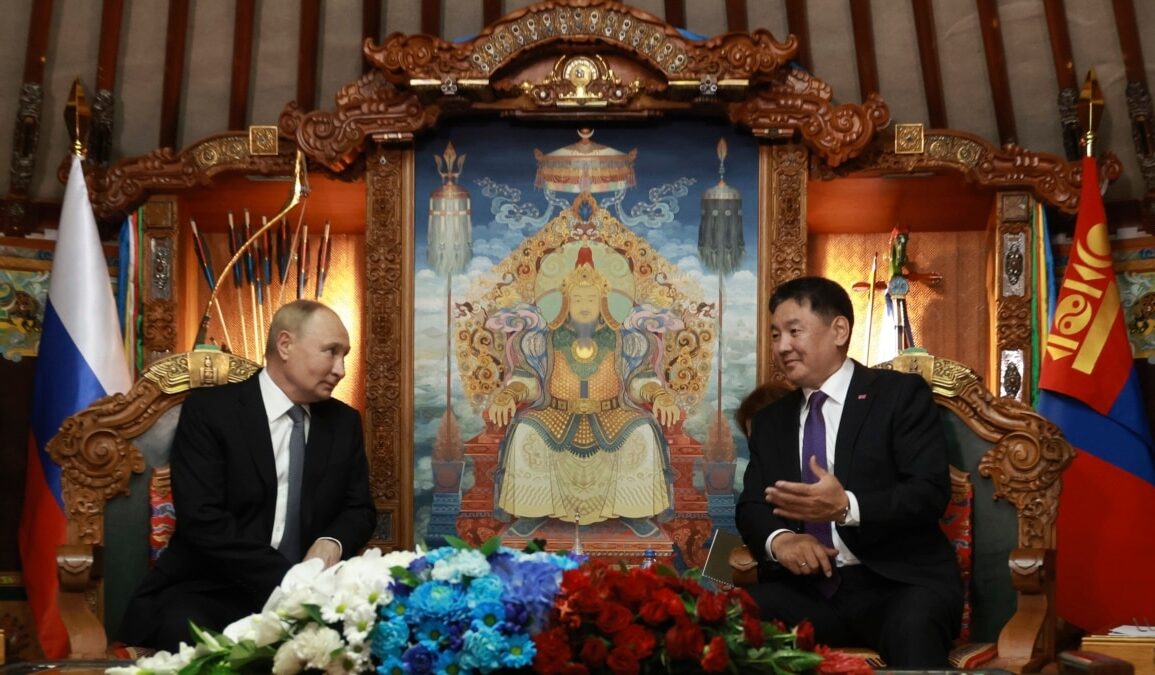
Moscow is using Russian President Vladimir Putin’s two-day visit to Mongolia earlier this week to undermine the International Criminal Court, or ICC, which charged Putin in March 2023 for the war crime of unlawfully deporting Ukrainian children to Russia.
Mongolia, a state party to the Rome Statute of the ICC, was obligated to arrest Putin upon his arrival on September 3, but it did not.
On September 3, Russian state TV correspondent Pavel Zarubin asked Russian Foreign Minister Sergey Lavrov about “concerns” from the United States and European Union over Putin’s Mongolia visit. Zarubin made no mention of the ICC arrest warrant.
Lavrov referenced the anniversary of a World War II battle in which Mongolian and Soviet forces defeated Imperial Japan, and he attempted to link it to current events.
“[I]f someone raises questions about why such closeness [between Mongolia and Russia] — well, probably, these are the people who once again began to slip Nazi overtones into their actions, not only their thoughts, which is reflected in support for the Kyiv regime.”
Like Putin, other top Russian officials and propagandists, Lavrov is falsely attempting to portray Russia’s invasion of Ukraine as an extension of World War II. Russia invaded Ukraine under the false pretext that Moscow was de-nazifying the country.
Lavrov previously made the provocative and false claim that German leaders’ efforts to help Ukraine defend itself against Russian aggression could be explained by the German leaders’ inheritance of “Nazi genes.”
Western concern over Mongolia not arresting Putin reflects on upholding the global rules-based order, which Russia further undermined through its invasion of Ukrainian and illegal annexation of Ukrainian territory.
Neither the U.S. nor the EU opposes Mongolia’s right to enjoy bilateral relations with Russia. They did emphasize Mongolia’s need to support the rule of law and to hold Putin accountable for alleged war crimes in Ukraine.
When asked about Putin’s recent visit, State Department spokesperson Matthew Miller said the U.S. expects “Mongolia to adhere to its commitment and its support for the principles of the U.N. Charter.”
But Miller also recognized the “position” Mongolia is in as a sparsely populated, landlocked state “sandwiched” between Russia and China.
Mongolia is economically dependent on Russia and China, and highly dependent on Russian energy products.
A Mongolian government spokesperson told Politico the supply of Russian energy and petroleum products is “critical to ensure our existence and that of our people.”
The EU, likewise, takes no issue with Mongolia’s relationship with Russia.
“Mongolia, like all other countries, has the right to develop its international ties according to its own interests,” European Commission spokeswoman Nabila Massrali said.
But she added that Mongolia is bound to the legal obligations that being a state party to the ICC entails.
Individual European countries have likewise noted Mongolia’s obligation to arrest Putin, saying there should be “no impunity for war crimes.”
Ukraine’s foreign ministry took a stronger stance, saying the Mongolian government had dealt a “heavy blow” to the ICC and international criminal justice system by not arresting Putin.
“Mongolia allowed the indicted criminal to escape justice, thereby sharing responsibility for his war crimes. We will work with partners to ensure that this has consequences for Ulaanbaatar,” Ukraine’s Ministry of Foreign Affairs spokesman, Heorhii Tykhyi, wrote in a September 2 post on X.
A number of prominent pro-Russian accounts on X contrasted Putin’s “red carpet” arrival in Mongolia with the West and/or Ukraine’s ineffectual calls for the Russian leader to be arrested.
Despite Moscow’s denials, the ICC, the International Commission of Inquiry on Ukraine, media reports, academic institutions, government bodies and non-governmental organizations have all compiled evidence documenting Moscow’s illegal efforts to forcibly deport children from Ukraine to Russia and Russian-occupied territory.
Ukraine says nearly 20,000 Ukrainian children have been deported or forcibly displaced, although the exact figure is likely much higher.
The majority of those children were taken from Russian-occupied regions in southern and eastern Ukraine.
That ICC arrest warrant previously kept Putin from attending the BRICS (Brazil, Russia, India, China, South Africa) economic summit in Johannesburg, South Africa, in July 2023.
This post was originally published on this site be sure to check out more of their content.









